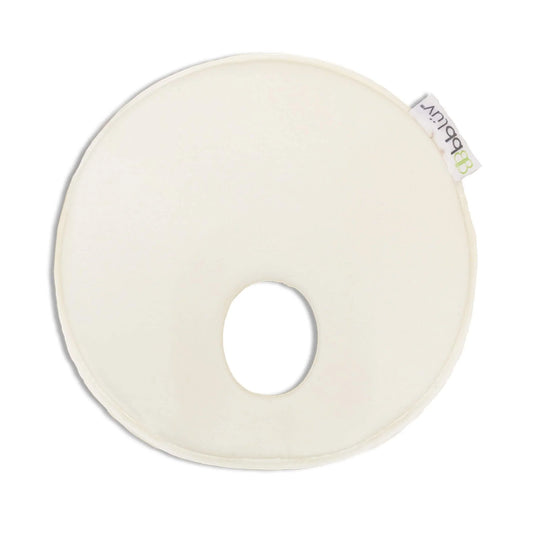We know there are a lot of questions about sleep regressions, so we've put together this article to delve into each one. Here we've mentioned the most common ones, but remember that every baby is unique, so the ages and the way they manifest a sleep regression can vary. And don't worry, not all babies go through all of them, and some don't even go through one!
Why are they called 'sleep regression'?
Sleep regressions (or crises) are a period of time when your baby experiences a regression in his or her sleep patterns.
It is called 'regression' because a baby who used to sleep well or already had certain established sleep patterns suddenly begins to show changes in his sleep or wake up more.
What are the most common ages at which your baby might experience a sleep regression?
4 month sleep regression
When: It can start after 8 weeks or as late as 5 months. The most common age is between 3.5 and 4 months.
Signs: Sudden worsening of sleep patterns, irritability, multiple nighttime awakenings, fewer naps, and changes in appetite.
Main reasons: Your baby's brain is developing at full speed. Your baby is becoming aware of his surroundings and changing his sleep from newborn to toddler. He's going through important milestones, such as rolling over on his tummy.
To learn more, check out the post The 4-Month Sleep Regression.
Sleep regression from 6 to 9 months
When: Around 6 months, and can be again around 9 months.
Signs: short naps, resistance to bedtime and naps, waking up very early in the morning and nighttime awakenings.
Main reasons: The reasons are very varied and can include developmental milestones that are beginning to manifest. The most common are: rolling over, babbling, creeping and crawling, beginning to sit up, separation anxiety and teething.
12 month sleep regression
When: Usually at one year, as this is an age full of progress and challenges for your baby. It is less common than other sleep regressions.
Signs: Crying, increased irritability, more night awakenings, short naps, and they begin to resist naps.
Main reasons : Sleep needs change slightly. While babies between 4 and 12 months need between 12-16 hours of sleep, children between 1 and 2 years need between 11-14 hours of total sleep. Other reasons are teething , and their increased awareness and interest in doing more entertaining things.
18 month regression
When: This is a time of big changes, which can disrupt your child's sleep patterns.
Signs: Night awakenings, resistance to bedtime and naps, and short naps.
Main reasons: your child's beginning to gain independence, as at this age he or she realises the control he or she has over certain situations and wants to use it. Now it is possible that your child 'decides' not to sleep. Other reasons may be that he or she wants to skip 1 nap (if he or she has more than 1), milestones such as walking and talking, and teething.
To learn more, check out the post The 18-Month Sleep Regression.
24 month regression
When: around 2 years old.
Signs: Nighttime awakenings, resistance to bedtime and naps.
Main reasons: teething , molars may be coming out; separation anxiety , although it generally begins around 7 and 8 months, some children have a peak around 18 months; and nightmares and fear, your child may begin to have nighttime fears.
5 Tips to Overcome Your Baby's Sleep Regression
- Keep your bedtime routine consistent.
- Try not to introduce new sleeping habits.
- Adjust your bedtime.
- Give your baby extra food.
- Practice your baby's new skills with him or her.
Although it is a challenging period, it is important for you to know that each regression is always accompanied by great learning for our babies.









